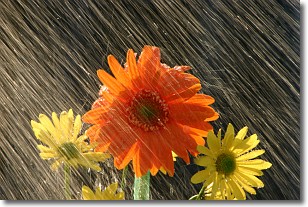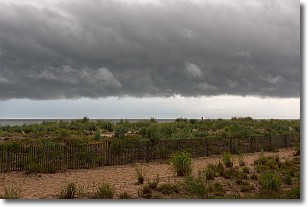Weather Alert in Kansas
Flood Warning issued August 27 at 7:56AM CDT until September 1 at 2:49PM CDT by NWS Wichita KS
AREAS AFFECTED: Reno, KS; Rice, KS
DESCRIPTION: ...The National Weather Service in Wichita KS has issued a Flood Warning for the following rivers in Kansas... Cottonwood River near Plymouth affecting Lyon and Chase Counties. Neosho River near Chanute affecting Neosho and Allen Counties. Cottonwood River at Cottonwood Falls affecting Chase County. Cow Creek near Hutchinson affecting Reno and Rice Counties. * WHAT...Minor flooding is forecast. * WHERE...Cow Creek near Hutchinson. * WHEN...From late Thursday night to early Monday afternoon. * IMPACTS...At 10.5 feet, There are numerous road closures northwest of Hutchinson due to high water. Low water crossing on 43rd Street just east of Pennington floods. Expect road closure on 43rd Street between Pennington to Hendricks roads. Also 69th Street floods between Wilson to Pennington roads. Then 50th Street floods between Wilson and Pennington roads. Flooding occurs along Pennington Road from Nickerson Blvd to 50th Avenue. * ADDITIONAL DETAILS... - At 7:15 AM CDT Wednesday the stage was 2.1 feet. - Forecast...The river is expected to rise above flood stage early Friday morning to a crest of 10.4 feet early Friday afternoon. It will then fall below flood stage early Monday morning. - Flood stage is 9.5 feet.
INSTRUCTION: Do not drive into flooded areas or go around barricades. Nearly two feet of water will carry most vehicles away. Turn around, don't drown. Additional information is available at www.weather.gov. The next statement will be issued this evening at 800 PM CDT.
Want more detail? Get the Complete 7 Day and Night Detailed Forecast!
Current U.S. National Radar--Current
The Current National Weather Radar is shown below with a UTC Time (subtract 5 hours from UTC to get Eastern Time).

National Weather Forecast--Current
The Current National Weather Forecast and National Weather Map are shown below.

National Weather Forecast for Tomorrow
Tomorrow National Weather Forecast and Tomorrow National Weather Map are show below.

North America Water Vapor (Moisture)
This map shows recent moisture content over North America. Bright and colored areas show high moisture (ie, clouds); brown indicates very little moisture present; black indicates no moisture.

Weather Topic: What is Precipitation?
Home - Education - Precipitation - Precipitation
 Next Topic: Rain
Next Topic: Rain
Precipitation can refer to many different forms of water that
may fall from clouds. Precipitation occurs after a cloud has become saturated to
the point where its water particles are more dense than the air below the cloud.
In most cases, precipitation will reach the ground, but it is not uncommon for
precipitation to evaporate before it reaches the earth's surface.
When precipitation evaporates before it contacts the ground it is called Virga.
Graupel, hail, sleet, rain, drizzle, and snow are forms of precipitation, but fog
and mist are not considered precipitation because the water vapor which
constitutes them isn't dense enough to fall to the ground.
Next Topic: Rain
Weather Topic: What are Shelf Clouds?
Home - Education - Cloud Types - Shelf Clouds
 Next Topic: Sleet
Next Topic: Sleet
A shelf cloud is similar to a wall cloud, but forms at the front
of a storm cloud, instead of at the rear, where wall clouds form.
A shelf cloud is caused by a series of events set into motion by the advancing
storm; first, cool air settles along the ground where precipitation has just fallen.
As the cool air is brought in, the warmer air is displaced, and rises above it,
because it is less dense. When the warmer air reaches the bottom of the storm cloud,
it begins to cool again, and the resulting condensation is a visible shelf cloud.
Next Topic: Sleet
Current conditions powered by WeatherAPI.com




